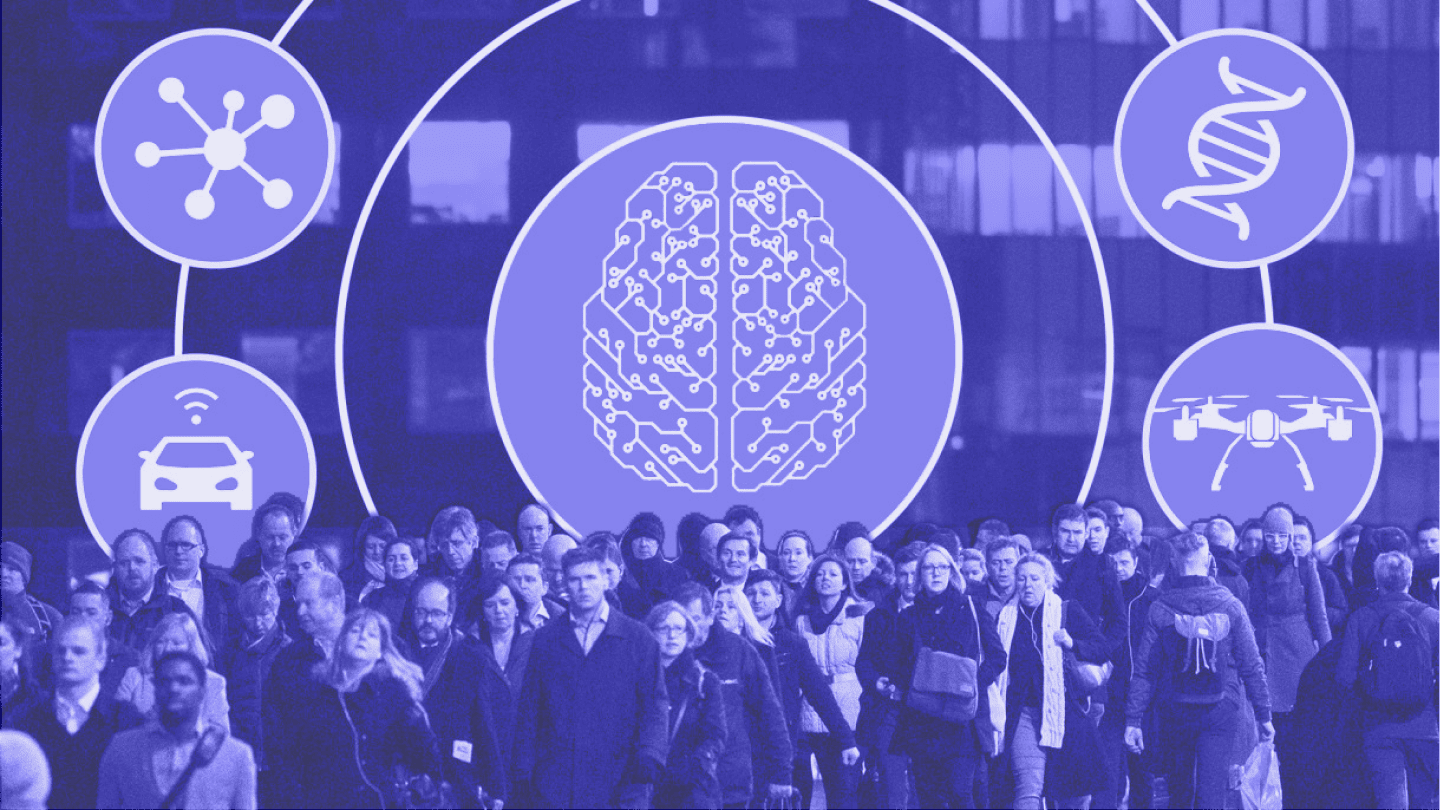- Skill #1. Understanding technology
- Skill #2. Decentralized leadership
- Skill #3. Collaboration
- Skill #4. Work on the result, Salary For Effectiveness
- Skill #5. Flexibility and work in the face of contradictions
- Skill #6. Growth mindset
- Skill #7. Openness
- Skill #8. Employee development
- Skill #9. Advanced level of soft skills
- Skill #10. Ethics
- Skill #11. Financial acumen
- Skill #12. Emotional intelligence
- The impact of a CEO
CEO skills are difficult to name unique or in some way particular: mostly, they just represent common sense and constant development. What is challenging here is staying set on the constantly changing environment and catching the slightest change in the leadership excellence trends that work.
A good CEO of the future knows how to work with data, has strategic thinking, understands his subordinates, and does not drive them into the frames. Read in the article what skills CEOs need in the next 5 years to be successful.
In this post:
As time passes, the labor market is changing and typical office employees are not exactly what they were 10 years ago. Artificial intelligence and machine learning are developing, so the responsibilities of the same specialist are being transformed, and the leader's functions are changing. Professions disappear, and new ones come in their place.
Already now, you need to master the essential skills that come in handy to become an effective chief executive officer in the next 5 years.
Skill #1. Understanding technology
Fundamental shifts that are caused by the tech boom, change the nature of labor. Technology comes to the fore. The leader of the future is not just an administrator and manager, but also a specialist with “computational thinking”. CEOs must be able to work with large amounts of data and analyze them. Technologies will create additional problems related to data management, privacy, and conflicts. The manager should be able to solve them. It is impossible to do these without a clear understanding of the work of technologies.

Expand your expertise
Software Engineering Processes For Non-Engineers: Everything You Need To Know
Since 1960s software development changes drastically and it gets harder and harder to understand it if you're not an egineer. Find out all hidden secrets in this article
Show meSkill #2. Decentralized leadership
The chief executive officer ordered everyone so you should listen and perform. Such kind of system is already dead. The leadership skills you need today are different. For instance, leading global corporations already use the approach of “management without bosses” or “team management.” In a couple of years, the main backbone of workers will be representatives of Generation Z, who do not accept pressure. Most issues, excluding strategic decisions, will be addressed collectively. The key skill of the leader is to learn how to work with the team, distribute tasks, and take the initiative of other employees.
Skill #3. Collaboration
One-sided movement and decision-making are now risky and imprudent. Collaboration otherwise brings more perspectives and views to each situation. So working together with your colleagues (teams, C-level management, board of directors) helps in discovering new ideas and solutions for the project. Isolation steals the chance to move forward if you listen to the team you gathered around you and now trust — your company will develop faster.
The CEO has three ways to foster an effective collaboration: will, plan, and manage. The first one is the result-driven approach, as where’s the will to achieve, there’s the openness to other opinions and solutions, and even if the final goal didn’t seem achievable for everyone before, it becomes one. The second way — plan how to effectively communicate. The willingness to achieve, followed by the detailed plan of communication, firstly brings everyone to a better understanding of the current situation, and secondly — opens a room for clearly evaluating and defining the solutions. And the last way is managing the outcomes. Collaboration brings both you and your partners and coworkers new results and information, which, having been analyzed and relevantly coped with, can give you all room for significant improvement and growth.

How do you think?
Hard Skills Vs Soft Skills: What Is More Important And Why
Have you ever guessed how to organize remote team properly? See some tips from our experts
Find out moreSkill #4. Work on the result, salary for effectiveness
Managers need to control staff with different schedules, freelance and full-time employees. The percentage of remote employees is increasing every year. Managers will need to evaluate work, regardless of the number of hours spent in the office, to approve the system of labor efficiency. Essential leadership skills now include thinking less about the process and more about the result.
Skill #5. Flexibility and work in the face of contradictions
By 2025, a situation will arise that will have to work with entirely different generations of workers: young Zetas and Millennials. They have different values and approaches to work, so managers will need to find a common language with everyone. Various cultures, ages, demographics and social characteristics can create conflict situations. CEOs must learn to work with people and understand their backgrounds.
Skill #6. Growth mindset
Do you, as a CEO, only focus on your team performing tasks and getting the previously set results, or do you challenge your team and give them a place to learn more and achieve better results after? You might have already heard of two mindsets: fixed and growth. While the fixed mindset effective leaders focus on the outcomes and numbers, the growth-set senior leaders focus on the process and ongoing exceeding the previously set goals. No way you leave your numbers not watched, of course, but tending to a growth mindset helps you create a team of responsible and fearless explorers, who finally exceed the expected numbers, as they are ready to learn, develop and identify opportunities. This is one of the key skills of a CEO who is eager to multiply their team’s potential.
Skill #7. Openness
On the one hand, the senior leader must do everything to protect the company's confidentiality. On the other, to maintain a market trend for transparency and openness. Companies are required to have up-to-date information about the business, maximum interaction with employees, and effective communication with partners and customers in instant messengers and social networks. As a result, managers do not know which side to take: openness or protection. You need to learn to look for a middle ground: not to keep information secret from the team and protect employees' data.
Skill #8. Employee development
The best competitive advantage of all senior executives is the level of employee development. To make any strategy work, you need to have a great team equipped with the right competencies and skills. You have multiple ways to provide your team with new knowledge, but the best one is continuous learning, which is opposite to traditional limited-in-time courses. This kind of training approach implies constant learning and immediate practice by implementing new skills into the process right away. At all levels of leadership, you have people with different backgrounds and views, which also can be a great source of experience and a gem for knowledge sharing. Just take a closer look, and you’ll see that you can cherish and nourish your human resources, even with your existing human resources, via listening to your staff carefully and defining their talents.

By the way...
7 Tips On How To Manage An IT Project Successfully
In this article, we will tell you what would happen with your app in case you have not redesigned it.
Let's seeSkill #9. Advanced level of soft skills
Skills needed to be a CEO include sociability, teamwork, learning new things, creativity, time management skills, erudition, and strong communication skills. To hunt the most talented employees in the coming years, you will drastically need these skills for yourself and everyone on your team. The ability to quickly navigate, readjust, be flexible and friendly, and understand technologies is a successful CEO’s skill and prior knowledge in 2022. You need to master them now. In the next 5 years, success will be achieved by those who are not afraid of difficulties and changes.
Skill #10. Ethics
The ethical skills a CEO needs to serve as a crucial regulator of relationships within a team, either contributing to the organization's success in achieving its goals or creating obstacles that may lead to the collapse of the entire enterprise.
When considering ethics as one of the key qualities of a CEO, they typically embrace the following concepts:
- Values
- Rights and obligations
- Rules
- Relationships
Values represent the most generalized assessments related to life's overarching goals and fundamental principles that consistently appeal to individuals, such as well-being, health, and peace.
Rights and obligations play a pivotal role. A right is a prerogative that grants an individual a defined space for action, encompassing rights like rest, personal integrity, and wages. However, these rights are seldom absolute, often being tempered by the rights of others. The interplay between rights and responsibilities is crucial; responsibilities, such as tax payment, adherence to the law, and specific job duties, are obligations shouldered by the CEO. Ensuring that members of the organization fulfill their duties in line with their roles is vital for effective functioning. Simultaneously, the organization holds certain obligations to its employees, enshrined in labor legislation, contracts, and agreements between the administration and the workforce.
Moral standards are the ethical requirements developed within a given social group. They encompass both widely observed norms of behavior, like not stealing or killing, as well as those often violated but still considered obligatory, such as not cheating or respecting elders. Moral standards frequently aid in navigating situations where conflicting interests come into play.
CEOs are intricately connected to others through a myriad of relationships. Ethical norms and values permeate all facets of human interactions between managers and subordinates. These relationships are grounded in the shared values embraced by individuals and certain ethical principles.
Skill #11. Financial acumen
Financial acumen forms the bedrock of everything. An owner must not only be cognizant of their current financial standing and its origins, but must also adeptly chart a budget, comprehend the intricacies of their field, and appraise all conceivable risks.
So, what exactly is CEO financial literacy? It involves:
- The ability to adeptly plan both personal and business finances, discerning the nuances that differentiate the two.
- A comprehensive understanding of financial terminology without batting an eye at the mere mention of words like 'margin.'
- The capability to execute your financial plan, generate income in alignment with it, and exercise control over expenditures.
If you can seamlessly navigate through all these aspects, congratulations are in order – you are a financially literate leader, equipped to handle any challenge. And if you aim to boost your company's profits or venture into new territory, leverage the financial skills CEO to the fullest.
For those yet to explore effective financial strategic planning tools, fret not. There's a plethora of courses available in the market that can aid your learning journey.
Skill #12. Emotional intelligence
After the publication of data in Daniel Goleman's book that only 15% of a CEO's success is explained by his mental development (IQ), and 85% is attributed to emotional intelligence (EI), the concept of “emotional intelligence” began to gain rapid popularity. But how exactly does emotional intelligence make a person successful? And does this mean that intelligence is now of no use to a leader because the main thing is emotions?
While the term "emotional intelligence" might sound like a bit of an oxymoron, its definition is surprisingly straightforward: it's the knack for comprehending and handling emotions through intellectual processes (essentially, the ability to analyze and manage what's unfolding in the emotional realm).
Awareness of emotions is directly linked to a crucial leadership competency: decision-making. Often, intuition is associated with this process. According to Goleman, intuition is essentially an emotion that arises from facts not yet fully grasped by the brain.
For instance, reading a report with seemingly sound figures might trigger a subtle discomfort, leading to a reconsideration and, unfortunately, a decision making process proved later to be erroneous. Such emotions are fleeting, and their source is seemingly inexplicable.

More on the topic
Working Remotely: How To Organize Remote Workers For Your Business
Have you ever guessed how to organize a remote team properly? See some tips from our experts.
Read the full guideDeveloping the skill of emotional awareness is vital for quickly identifying and acknowledging signals amidst the chaos of a busy workday. To sense emotions, it's important to be attuned to changes in physical states; someone might feel a tense back or an indescribable inner tension.
A leader with high emotional intelligence is sensitive not only to their own emotions but also to those of their team, noticing when a colleague is upset or frustrated. Facial expressions, intonations, phrases, or unusual behaviors convey emotional states, and an emotionally intelligent leader takes these into account. Understanding that a person experiencing intense emotions may not think productively, a savvy leader might send them home instead of futilely demanding focused work.
The significance of emotional intelligence is deeply ingrained in the recognition that only by understanding one's own feelings and the state of those around can effective emotional management be achieved.
The impact of a CEO
The impact of a CEO transcends individual skills and strategic thinking, extending to the very core of an company's success. The dynamic skills for CEO, outlined in this article, play a pivotal role in shaping not just their personal trajectory, but significantly influencing the overall success and resilience of the companies they lead.
As we delve into the multifaceted realm of a CEO's responsibilities, it becomes evident that their influence is not confined to boardrooms; it radiates throughout the organizational structure, setting the tone for innovation, adaptability, and employee engagement.
Ultimately, the impact of a CEO goes beyond profit margins and market share; it encompasses the ability to navigate challenges, foster a positive workplace culture, and inspire teams toward a shared vision of success.
The true measure of a CEO's impact lies in their adept integration of these essential skills, propelling their companies forward in an era defined by change, complexity, and relentless innovation.





















